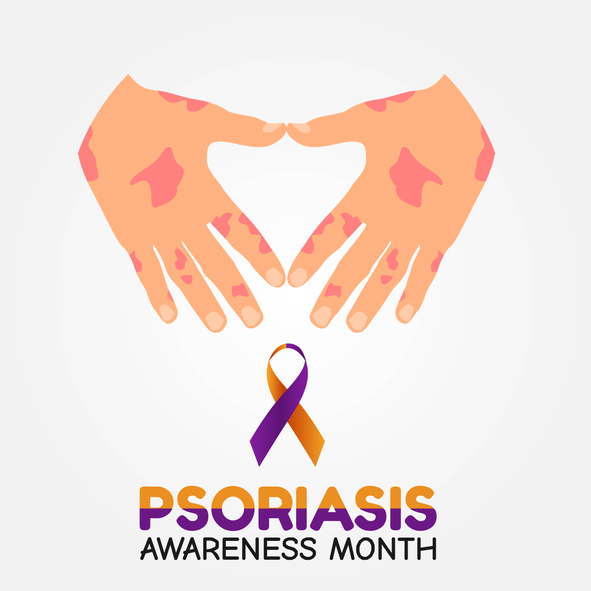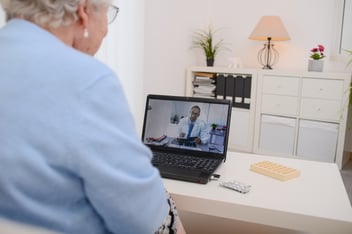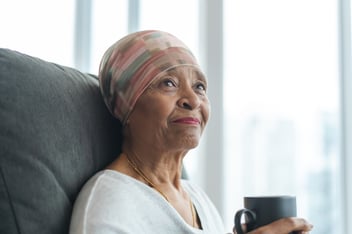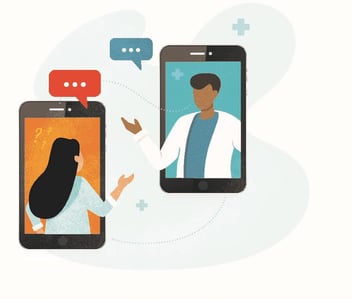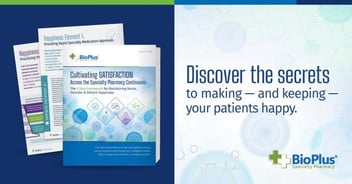As we head into the month of August, it’s a fitting time to acknowledge National Psoriasis Awareness Month, since the summer sun can serve as a balm for the irritated skin of psoriasis. In fact, just a half hour of sun exposure each day can help; although most people with psoriasis will require at least some type of medication treatment (OTC or prescription).
More than 8 million Americans experience psoriasis, with hallmark symptoms of itchy or sore patches of thick, reddened skin covered with silvery scales. Psoriasis flare ups can be triggered by:
- Infection (such as strep throat)
- Skin injury such as a sunburn or cut
- Stress
- Cold weather
- Smoking
- Heavy alcohol consumption
- Medication use (beta-blockers, lithium, or antimalarial drugs)
Although the exact cause of psoriasis is not known, psoriasis tends to run in families. Psoriasis occurs when the immune system sends out faulty signals that affect the life cycle of skin cells: skin cells, which should normally take weeks growing to maturity deep beneath the surface of the skin, instead rise to the skin’s surface and form red patches of dry, itchy scales.
A common treatment plan for psoriasis is called the “1-2-3” approach.
- Application of topical creams and ointments, such as corticosteroids, vitamin D analogues, anthralin, topical retinoids, calcineurin inhibitors, salicylic acid, coal tar, and/or a moisturizer.
- Skin exposure to natural or artificial ultraviolet light. The light causes the activated T cells in the skin to die, which slows down the cell turnover that is a problem in psoriasis. (However, limit sun exposure to avoid sunburn.)
- Oral medications or injections of medications, including retinoids, methotrexate, cyclosporine, hydroxyurea, and immunomodulating drugs (such as Otezla, Humira, Stelara, or Enbrel).
With psoriasis, although no cure is available, long term remission is possible. Therapy for severe and extensive plaque disease is where a specialty pharmacy such as BioPlus can most help. Our pharmacy team is ready to help your patients achieve and maintain remission of psoriasis symptoms.
By The Numbers
- 8 million Americans have psoriasis – making it the most common autoimmune disease*
- 10-30% of people with psoriasis will also develop psoriatic arthritis
- 15-25 years old: most likely age of psoriasis onset
- 30-50 years old: most likely age of onset for psoriatic arthritis
- 25% of psoriasis cases considered moderate to severe
- $135 billion/year: total health care costs (both direct and indirect) of psoriasis in the U.S.
* Source: The National Psoriasis Foundation
Related Posts
Dermatology Telehealth: The Value and Road Ahead
Curious to learn more about telemedicine and how you can use it (or use it better) in your...
Cancer Patients: Don’t Delay Treatment
Hearing a cancer diagnosis is scary. But getting that news during a global pandemic can be...
Dermatology Care Through a Phone Screen
The Covid-19 outbreak is transforming healthcare delivery in the United States seemingly...
The Keys to Happier Patients
When patients have direct communication with a pharmacist, their stress levels go down. Research...

